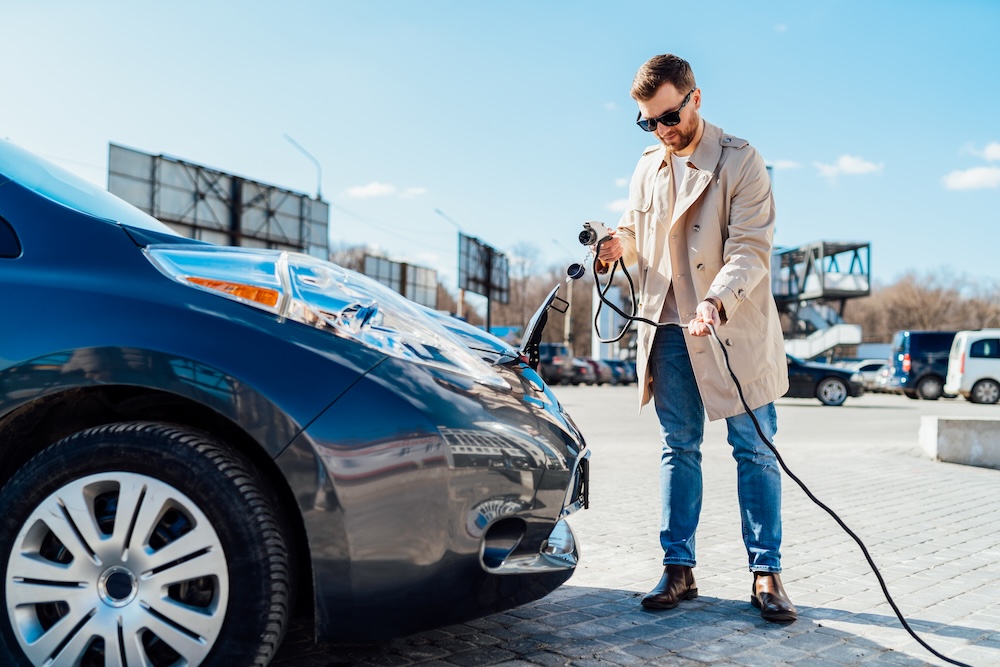Electric cars (EVs) have gained enormous attention in recent years as a sustainable alternative to traditional gasoline-powered vehicles. By running on electricity rather than fossil fuels, EVs offer the potential to reduce greenhouse gas emissions, improve air quality, and help tackle climate change.
But while electric cars promise a cleaner future, their environmental impact is not without challenges. To fully understand their role in building a sustainable transportation system, we need to explore both the benefits and the environmental trade-offs.
Environmental Benefits of Electric Cars
Reduced Greenhouse Gas Emissions
Unlike combustion engine vehicles, electric cars produce zero tailpipe emissions. This means less carbon dioxide, nitrogen oxides, and particulate matter released into the air — pollutants that drive global warming and contribute to smog and respiratory illness.
The impact grows even greater as power grids shift toward renewable energy. Charging EVs with wind or solar dramatically lowers their lifecycle emissions compared to gasoline cars.
Cleaner Cities and Improved Health
Switching to EVs not only cuts emissions but also makes cities cleaner and healthier. Less exhaust pollution means reduced asthma rates, cardiovascular disease, and premature deaths linked to poor air quality.
Energy Efficiency
Electric motors convert about 60–77% of electrical energy into motion, compared to 20–30% for gasoline engines. This makes EVs a far more efficient use of energy.
Challenges of Electric Cars
Battery Production and Resource Extraction
EV batteries rely on minerals such as lithium, cobalt, and nickel. Mining these resources can cause deforestation, soil erosion, and water contamination, particularly in ecologically sensitive areas. The human cost is also significant, with reports of unsafe labor practices in some regions.
For electric cars to truly be sustainable, manufacturers must ensure responsible sourcing and invest in recycling programs that reclaim valuable materials.
Electricity Generation Emissions
While EVs produce zero emissions when driving, the electricity used to charge them still matters. In areas heavily dependent on coal or natural gas, charging EVs can indirectly contribute to greenhouse gases. However, as more countries adopt renewable energy grids, the environmental footprint of EV charging will continue to shrink.
Battery Disposal and Recycling
Eventually, every EV battery reaches the end of its useful life. Without proper recycling, discarded batteries risk contaminating soil and water with heavy metals. The good news: companies like Tesla and other innovators are pioneering battery recycling initiatives, aiming to recover materials and reduce waste.
Solutions for a Sustainable Future
Transitioning to Renewable Energy
Pairing EV adoption with renewable energy is essential. Tesla, for example, integrates solar panels and home storage systems, enabling drivers to power their cars with clean energy straight from the sun. As solar and wind become cheaper and more widespread, EVs charged with renewables will become truly climate-friendly.
Advancing Battery Technology
Improving battery chemistry is another critical step. Panasonic and other leaders are working on longer-lasting, higher-density batteries that require fewer rare materials. Solid-state battery research also holds promise for safer, more sustainable energy storage.
Recycling and Circular Economy
Battery recycling is one of the most exciting sustainability breakthroughs on the horizon. Companies like Redwood Materials are innovating methods to recycle lithium, cobalt, and nickel, closing the loop and reducing the need for new mining.
Government Incentives and Policies
Policies remain a powerful driver of adoption. Rebates, tax credits, and grants make EVs more affordable for consumers. Companies like EVgo partner with governments to expand charging infrastructure, ensuring accessibility for urban and rural communities alike.
Countries such as Norway, where nearly 80% of new car sales are electric, show that ambitious government incentives can rapidly accelerate the transition to clean transport.
The Bigger Picture: Sustainable Transportation
While EVs are a crucial tool in reducing our reliance on fossil fuels, they’re only one piece of a sustainable transportation system. Walking, biking, carpooling, and investing in public transit are equally important for reducing emissions and creating livable cities.
An all-electric future paired with renewable energy, circular battery systems, and smart infrastructure can dramatically reduce humanity’s carbon footprint while preserving natural resources.
Conclusion
Electric cars are not a perfect solution — but they are a powerful step toward sustainable transportation. While challenges such as mining impacts, battery disposal, and grid emissions remain, innovations in renewable energy, recycling, and battery technology are addressing these issues head-on.
By supporting policies that accelerate renewable energy adoption, choosing EVs when feasible, and advocating for responsible manufacturing, individuals can play a direct role in shaping a cleaner future.
Sustainability requires balance, and electric cars offer an opportunity to reduce emissions, improve air quality, and promote a healthier planet. Together, with innovation and commitment, EVs can help drive us toward a climate-friendly, zero-emissions future.









Reader Interactions